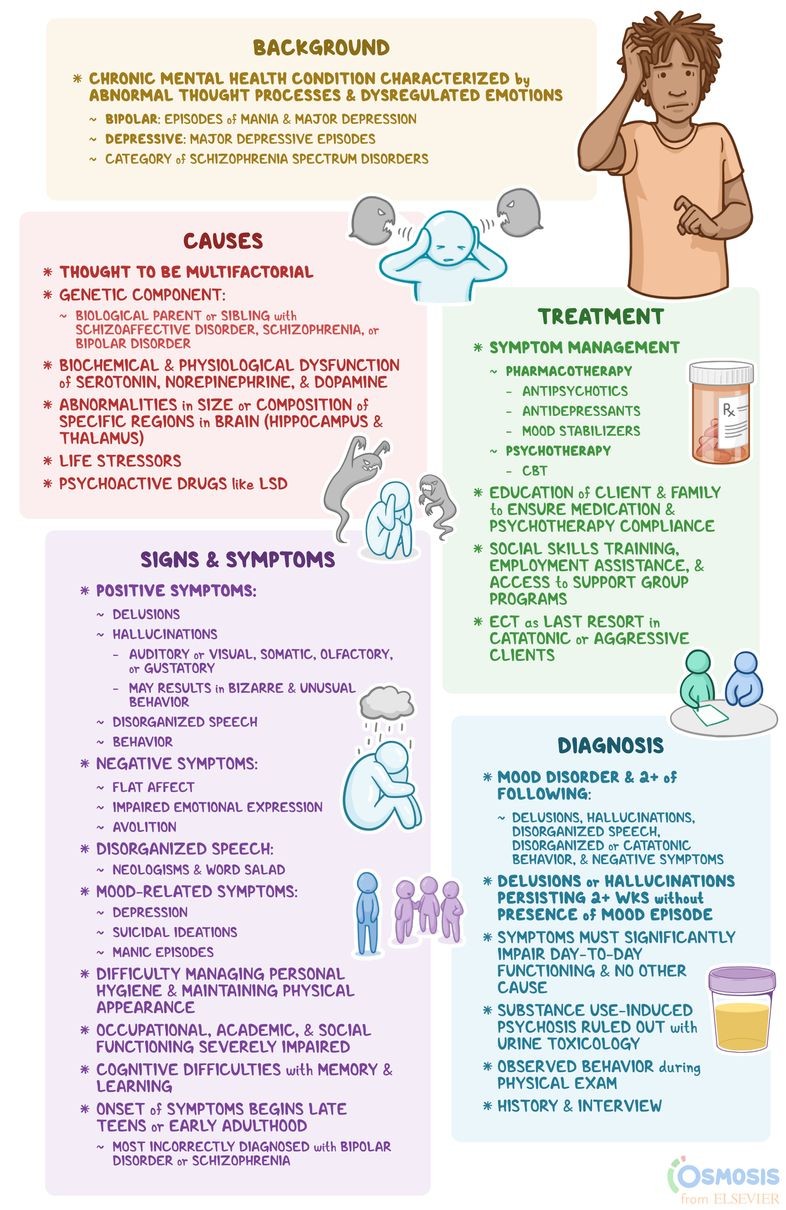
Contents
- 1 Is Schizoaffective Disorder Worse Than Bipolar?
- 1.0.1 What are the symptoms of schizoaffective disorder?
- 1.0.2 What causes schizoaffective disorder?
- 1.0.3 How severe is schizoaffective disorder?
- 1.0.4 How severe is bipolar disorder?
- 1.0.5 What other factors determine which disorder is worse?
- 1.0.6 How can you differentiate schizoaffective disorder from similar conditions?
Is Schizoaffective Disorder Worse Than Bipolar?
Schizoaffective disorder is a condition on the schizophrenia spectrum, but it is distinct from schizophrenia. Generally, individuals with schizoaffective disorder may have more symptoms to manage than those with bipolar disorder, but this may not apply to every person with these diagnoses.
Schizoaffective disorder is a unique condition that combines schizophrenia-like symptoms such as paranoia, hallucinations, and social isolation, with mood symptoms that resemble either bipolar disorder or depression.
Symptoms of schizoaffective disorder can vary from person to person. Individuals with bipolar disorder commonly experience psychotic symptoms, resulting in overlap between the two conditions. Therefore, a person with schizoaffective disorder may experience more severe mental illness than someone with bipolar disorder. However, bipolar disorder, especially when accompanied by psychotic symptoms, can also be severe.
It is crucial for doctors to rule out other conditions such as bipolar disorder, depression, drug use, and schizophrenia before diagnosing schizoaffective disorder.
What are the symptoms of schizoaffective disorder?
Experiencing psychotic symptoms warrants concern and should not be immediately associated with schizophrenia due to media portrayals. Self-diagnosis is not recommended as specific factors determine whether a person has schizoaffective disorder.
Schizoaffective disorder is categorized into two types: bipolar type and depressive type. Psychotic symptoms are consistent, while mood disorder symptoms fluctuate.
Schizoaffective with bipolar symptoms
This subtype may be more challenging to manage than most cases of bipolar disorder due to the combination of psychotic symptoms and the ups and downs of bipolar disorder. Symptoms may include:
- Episodes of mania
- Episodes of depression
- Paranoia, hallucinations, or delusions
- Speech problems
- Trouble in relationships, work, school, and life
Schizoaffective with depressive symptoms
Individuals with the depressive subtype face significant depression but do not experience the highs of mania. The severity of this subtype varies among individuals and cannot be generalized. Symptoms may include:
- Episodes of depression that may last for a long time or come and go
- Paranoia, hallucinations, or delusions
- Trouble functioning in life and in relationships
What causes schizoaffective disorder?
Schizoaffective disorder does not have a single cause, but a combination of genetic predisposition and stressful events may trigger the condition. Having a close relative with the disorder and using psychoactive drugs like LSD increase the risk of developing schizoaffective disorder.
How severe is schizoaffective disorder?
Receiving a diagnosis of a mental illness involving schizophrenia-like symptoms alongside bipolar or depression-like symptoms can cause anxiety. Schizoaffective disorder can range from relatively mild to disabling. People with schizoaffective disorder may have more symptoms to manage than those with bipolar disorder, but this may not apply to every individual.
How severe is bipolar disorder?
Bipolar disorder, even without schizoaffective symptoms, can be severe and negatively impact a person’s quality of life without treatment. With the presence of psychotic symptoms, bipolar disorder may be misdiagnosed as schizoaffective disorder and be more severe than other types of bipolar disorder.
What other factors determine which disorder is worse?
Both bipolar I and bipolar II come with the risk of a poor quality of life, especially with more depression symptoms. Several factors, including stress levels, medication adherence, relationship health, social support system, and socioeconomic status, determine the perceived severity of a person’s condition.
QUESTION
How can you differentiate schizoaffective disorder from similar conditions?
Given the rapidly shifting moods, psychotic symptoms, and the ability to handle stress day to day, distinguishing schizoaffective disorder from similar conditions can be challenging. Consider the following three diagnoses to understand how they differ:
- Schizophrenia. While severe, schizophrenia can be managed with medication and therapy. It does not include the extreme highs or lows of schizoaffective disorder or bipolar disorder but may involve social withdrawal, bizarre behavior, and mood swings.
- Bipolar disorder. Experiencing more extreme hallucinations or paranoia does not necessarily indicate the development of schizoaffective disorder. It is important to discuss symptoms with a doctor and review medications for proper treatment.
- Depression. Depression typically responds well to cognitive-behavioral therapy and medication. Psychotic symptoms are rare in depression and usually occur during depressive periods rather than consistently.
Both schizoaffective disorder and bipolar disorder can range from mild to severe. Individuals with schizoaffective disorder may have fewer periods of "normality" compared to those with bipolar disorder. A person’s stress levels, relationships, and overall functioning influence the perceived severity of their condition. Consult a doctor immediately if experiencing troubling or unusual symptoms.
Sources:
American Psychological Association: "How Do I Choose Between Medication and Therapy?"
Bipolar Disorders: "Psychosis in Bipolar Disorder: Does It Represent a More ‘Severe’ Illness?"
Cleveland Clinic: "Schizoaffective Disorder," "Schizophrenia."
International Journal of Bipolar Disorders: "Poor quality of life and functioning in bipolar disorder"
Johns Hopkins Medicine: "Major Depressive Disorder"
Mayo Clinic: "Schizoaffective disorder: Diagnosis & treatment," "Schizoaffective disorder: Symptoms and causes"
National Alliance on Mental Illness: "Bipolar Disorder," "Schizoaffective Disorder"


